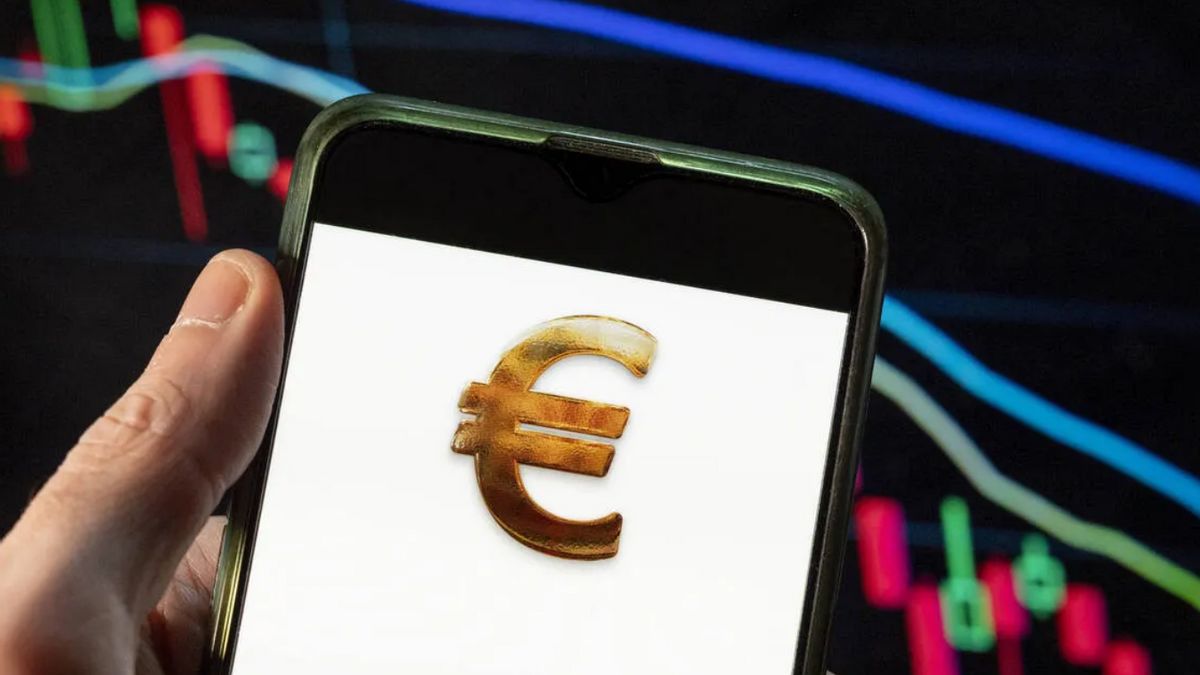JAKARTA - The European Central Bank (ECB) has announced plans to launch a digital Euro, a form of electronic money that can be used as a means of payment across the Euro zone. The project aims to simplify and unify digital payment systems in Europe, as well as contribute to increasing efficiency and financial inclusion.
However, this plan was not welcomed by the crypto asset community, which considers the digital Euro a threat to the principle of decentralization and autonomy that is the basis of cryptocurrencies. They fear that the digital Euro will increase surveillance and control from the authorities, as well as disrupt innovation and competition in the digital payment sector.
What Is Digital Euro?
Digital euros are electronic money issued by ECB and national central banks in the Euro zone. Digital Euros will have the same value as physical Euros, and can be used to make payment transactions across Europe. Digital euros will be available in the form of digital accounts or digital wallets, which can be accessed via electronic devices such as cell phones or smart cards.
The ECB says that the digital Euro will be a complement, not a substitute, of the physical Euro. The ECB also guarantees that the digital Euro will be safe, reliable, and easy to use. In addition, the ECB plans to impose a digital Euro number limit that can be owned by each individual or entity, as well as a mechanism to prevent the transfer of funds from commercial banks to central banks.
SEE ALSO:
How Is The Response Of The Crypto Asset Community?
The crypto asset community, which consists of users, developers, and service providers related to cryptocurrencies, is not so enthusiastic about ECB's plans to launch a digital Euro. They consider digital Euro as a threat to the principle of decentralization and autonomy on the basis of cryptocurrencies.
According to them, the digital Euro will remain under the control and supervision of the ECB and the national central bank, which can intervene and limit the use of digital Euro in accordance with their established policies and regulations. This contradicts crypto assets, which operate independently from central authorities, and rely on network consensus to validate transactions.
In addition, they fear that digital Euro will disrupt innovation and competition in the digital payment sector, by providing an unfair advantage to ECB and national central banks, which can offer payment services at lower or even free costs. This can reduce the appeal and demand for crypto assets, which usually require higher transaction fees.
What Does ECB Say?
The ECB, as the party responsible for the digital Euro project, seeks to ease concerns and criticism from the crypto asset community. The ECB insists that the digital Euro is not meant to replace or threaten crypto assets, but to complement and support the development of digital payments in Europe.
The ECB also promises that the digital Euro will be designed by considering aspects of security, privacy, and inclusion. The ECB will protect the personal data of digital Euro users, and will not use them for other purposes without user consent. The ECB will also ensure that the digital Euro is accessible to everyone, regardless of social, economic, or geographical status.
In addition, the ECB claims that the digital Euro will provide benefits to the crypto asset community, by improving the quality and availability of market data, as well as facilitating integration between conventional payment systems and alternatives. The ECB also hopes that the digital Euro can be a stimulus for innovation and collaboration in the digital payment sector, including with crypto asset service providers.
The English, Chinese, Japanese, Arabic, and French versions are automatically generated by the AI. So there may still be inaccuracies in translating, please always see Indonesian as our main language. (system supported by DigitalSiber.id)
















